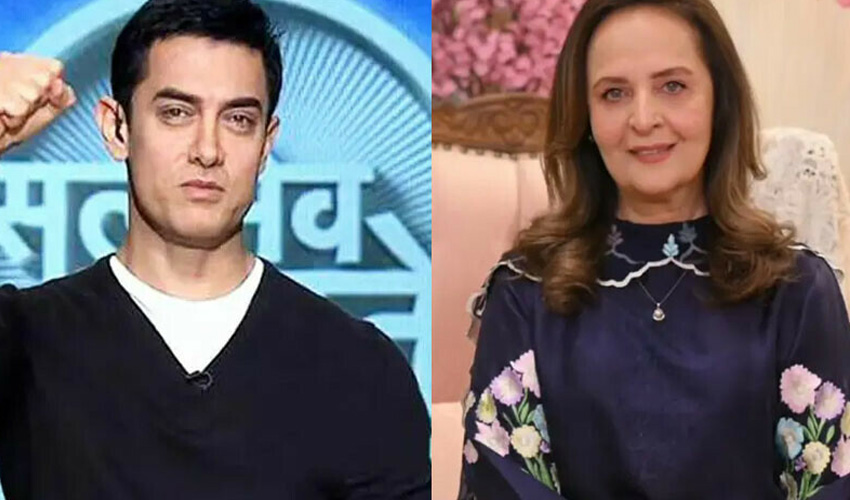Renowned Pakistani television personality Hina Bayat recently revealed that Bollywood actor Aamir Khan’s hit show Satyamev Jayate closely mirrored her own television program's format.
Bayat, who has earned widespread recognition for her talent, beauty, and courage, made these comments during a guest appearance on Ushna Shah's talk show.
Bayat, who started her career as a host, was the first to address real societal issues through her television shows, breaking taboos and creating awareness on topics that had long been overlooked in Pakistan's media landscape. Her impactful programs delved into sensitive subjects and provided a platform for underrepresented voices, drawing attention to various societal concerns. She later transitioned to acting, where she found immense success.
However, Bayat revealed an unexpected development in her career during her appearance on Shah's show: the format of Aamir Khan's Satyamev Jayate bore a striking resemblance to her own earlier work. She explained that the concept, as well as the set design of Khan’s popular Star Plus program, were strikingly similar to her own show.
“Many of the individuals who worked on my show were shocked to see the similarities in Satyamev Jayate,” Bayat noted.
She expressed her gratitude for the opportunity to address taboo topics on national television and tell the stories of individuals who were often sidelined. However, the revelation of the copied format added a surprising new layer to her professional journey.
“I’m proud of the work I did, and I am thankful for the platform I had. To be able to bring such vital issues into the public eye is something I will always cherish,” Bayat remarked, reflecting on the lasting impact of her show.
While Bayat did not comment further on any potential legal action or concerns, the similarities between the two shows have raised questions about originality and intellectual property in the world of television.
Satyamev Jayate, which aired from 2012 to 2014, became one of India's most influential shows, earning praise for its social message and widespread reach. Yet, this recent revelation sheds light on how ideas can travel across borders and spark debate on the ethics of format borrowing.



























